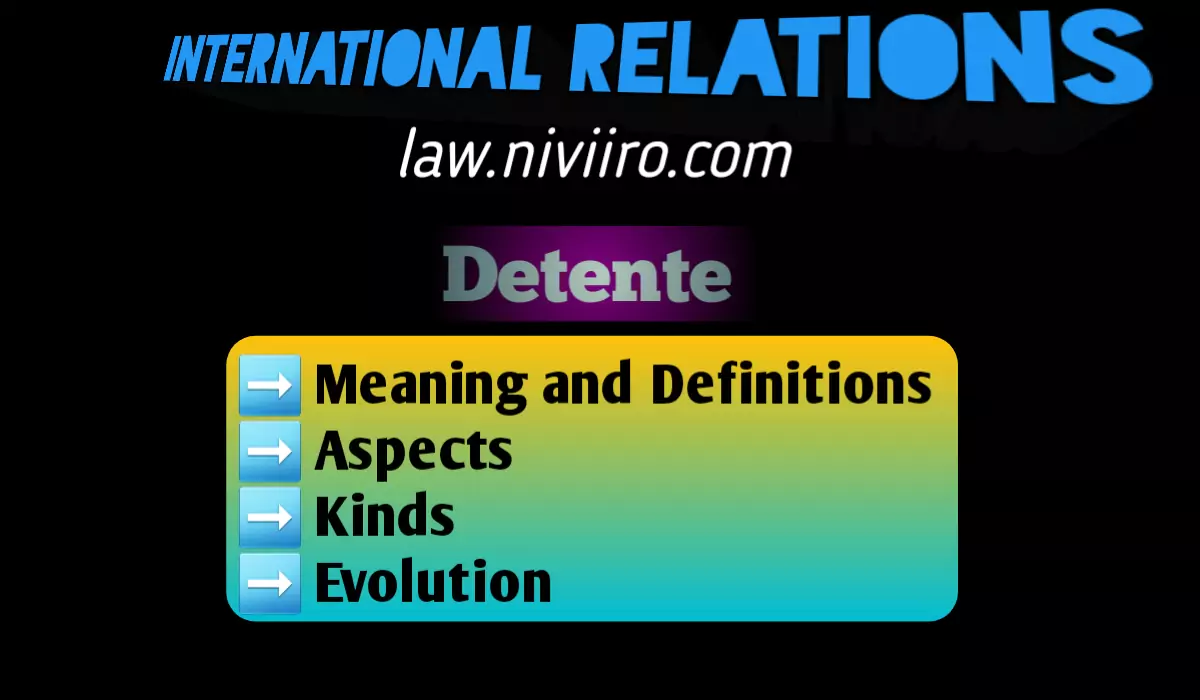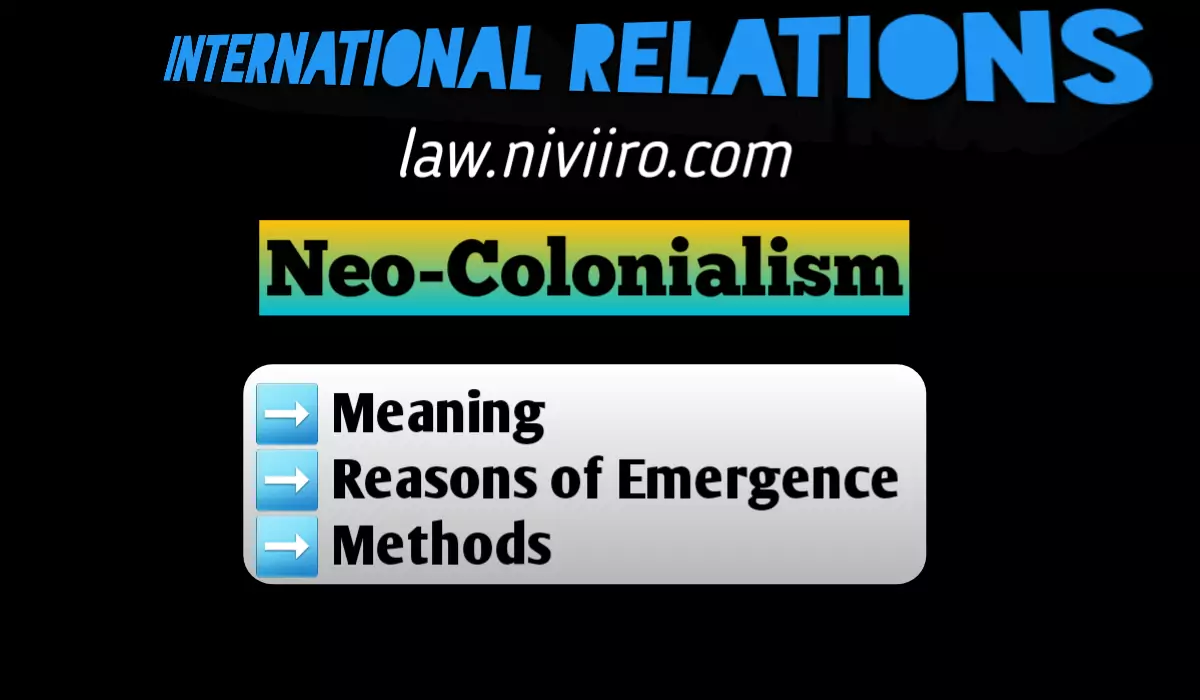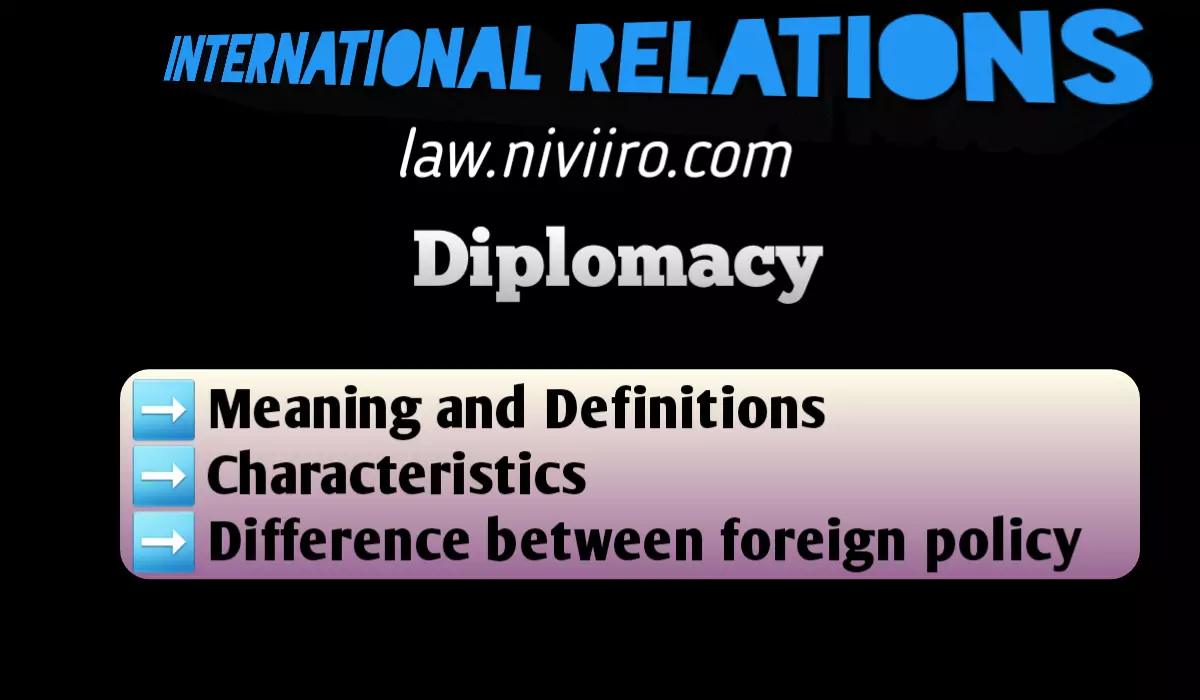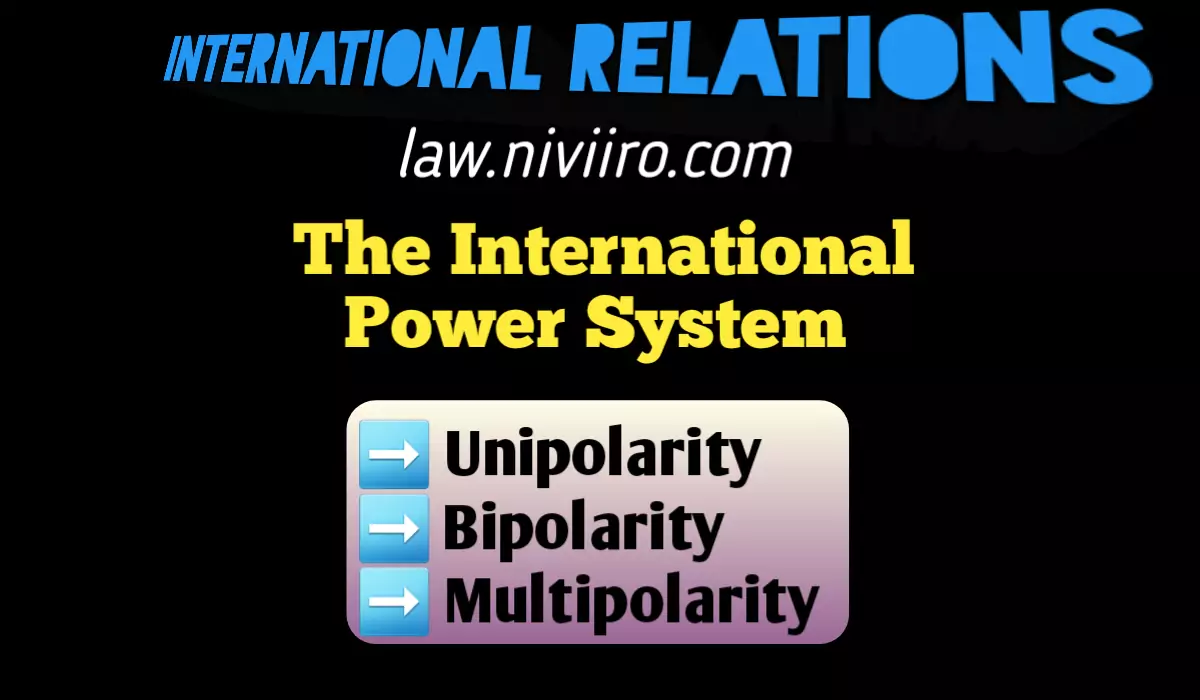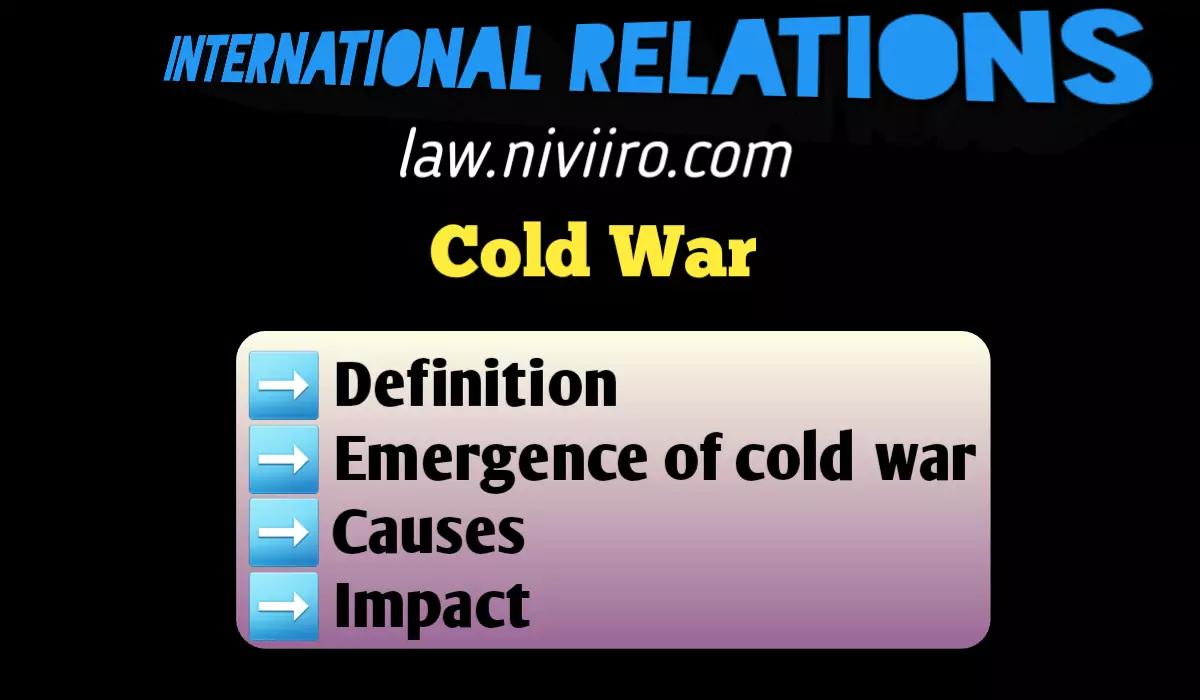Detente is a diplomatic phrase that refers to the cession of tense ties between states and denotes the initial phase in the establishment of positive relations as opposed to an approach, according to the Dictionary of Politics. Detente is a phrase commonly used in international affairs to refer to the reduction of Cold War tension between the two power blocs, Western and Eastern, led by the USA and the USSR, starting in the middle of the 1960s. The phrase is occasionally used to refer to relations between the USSR and China as well as the evolution of relations between the USA and China.
Meaning and Definitions of Detente
Detente literally means relaxation of strained relations between two states.
- Couve de Murville, one-time French Prime Minister says, “Detente is, above all, a frame of mind, then a proposal to start negotiations, normalisation of relations, and contacts and finally discussion of concrete issues.” But, it bears external aspects of detente, completely ignoring its internal content and sources.
- Marshall Shulman says that detente is “a partial codification of the terms of competition” between the Soviet Union and United States. This definition too provides a limited interpretation of the content. But detente is a much broader process of improvement of relations between all states, big and small, on a fundamentally new basis, proceeding from recognition of the principles of peaceful coexistence.
- Leonid Brezhnev says, “Under the incident of international detente, there is an ever clearer and broader expression of the peoples’ urge to do away with the threat of war and to have truly lasting peace and fruitful cooperation. Advance in this direction requires persistent political struggle to overcome the resistance of many circles which are aggressive by nature or are simply inert in their thinking. However, despite the many obstacles the mighty tendency towards detente and peace has been making headway.”
The detente was a step in the direction of enduring peace. It’s important to distinguish between detente and peace. The objective is peace. Detente is a diplomatic approach or tactic that can be used to accomplish that goal. Detente, on the other hand, must not be confused with appeasement. In an effort to uphold the pretended standards of fairness to the national interest, appeasement was a policy that ignored the balance of power.
Aspects of Detente
The aspects of detente are:
(1) Detente as a method of tension reduction.
While the Russians work to establish global hegemony, the Chinese do not use the term “detente” or the change in their relationship with the USA; instead, they refer to the connection between the Soviet Union and the United States. It is used to characterise the shift in ties between the USA and China after 1969 as well as relations between the USA and the USSR, however, because there is no other phrase that precisely expresses the approximate meaning of the reduction of tension. In actuality, the detente with China was a more significant success for the USA than the detente with the USSR in terms of the lowering of tension.
(2) Detente as Diplomatic Strategy
Detente has been viewed as a diplomatic tactic that could help to clarify the crucial point that it does not mean the struggle for diplomatic influence is over; rather, it is merely a means of making it less dangerous, pushing it closer to the nuclear threshold, and potentially giving it a more innovative focus. In its truest sense, it is a tactic that resulted from a thorough and deft analysis of power dynamics.
Kinds of Detente
Detente comes with : military, economic, scientific, and cultural. The most significant of these is military detente. The significance of other factors is also equally important at the same time. Over time, military detente developed. The main moves towards military detente include the signing of the Partial Test Ban Treaty in 1963, SALT 1 in May 1972, and the Helsinki Accord in 1975. In terms of economics, the Soviet Union imports wheat from the United States and has expressed interest in obtaining American technology for oil exploration and other industrial uses.
With regard to the construction of gas pipelines linking Europe with Russian oil fields, the USSR reached an agreement with France and Germany. Russia also pledged to provide these nations with oil. Even though the USA did not like this, it was necessary for it to modify its stance and eventually concur with its friends. Scientific cooperation between the USA and the USSR has begun, for instance in the area of space exploration. Good outcomes have also come from this partnership.
Additionally, there have been cultural exchanges between the two nations, which have significantly contributed to lowering mistrust and fostering understanding. In its broadest sense, detente may refer to improved relations between two adversaries. In its narrowest sense, detente refers to efforts for greater understanding and peace between the West and East blocs.
The “central detente” refers to the détente between the USA and the USSR. Middle detente, for instance, the détente between the USSR and Germany, may refer to any detente between a superpower and any middle power.Detente between two small powers, between any two groups of small powers or between a small power and middle power may be called ‘peripheral detente’. Detente between India and Pakistan; between South Africa and Angola are examples for ‘peripheral detente’.
Evolution of Detente
Winston Churchill is regarded by Coral Bell in his book “Diplomacy of Detente” as the concept of detente’s original spokesman. From early 1953 to the summer of 1955, the Churchillian initiative towards detente with the USSR was most fully developed. Churchill once asserted that since 1948, a diplomatic settlement with the USSR was not impossible. The Churchillian initiative did not receive American support until 1969, and the American response to the British detente proposal was not encouraging. However, the Russian side gave a response.
After Stalin’s death, Malenkov took over as prime minister and immediately began his efforts to promote detente. Despite domestic political unrest, the USSR demonstrated a greater willingness to pursue detente in accordance with the terms of the 1955 Austrian Treaty. In 1963, the Geneva Hotline Agreement and the Partial Test Ban Treaty were signed, bringing the USSR and the USA closer together. The USSR, the USA, and China emerged as a triangular balance of power during Khrushchev’s detente drive in 1959. The dawn of 1969 marked the conclusion of Sino-Soviet progress and the beginning of US detente with China.
On August 2, 1975, the heads of 35 European and North American countries signed a historic agreement known as “Detente,” promising to improve relations and ensure the inviolability of their respective borders following World War II. A new era began as a result. Reiterating their “objective of promoting better relations among themselves and ensuring conditions in which their people can live in true and lasting peace,” the signatories reaffirmed their commitment to this goal. They also promised to respect human rights, other countries’ sovereign equality, and their own rights. The agreement also emphasises the peaceful resolution of disputes, abstaining from the threat or use of force, non-interference in domestic affairs, cooperation between states, and the sincere performance of legal obligations.
Related Post
- National Power | Definitions | Forms | Methods
- Emerging trends in international relations
- Relation between RTI and democracy
- Nature and scope of International Relations
Detente means ?
Detente literally means relaxation of strained relations between two states.
Definitions of Detente ?
Couve de Murville, one-time French Prime Minister says, “Detente is, above all, a frame of mind, then a proposal to start negotiations, normalisation of relations, and contacts and finally discussion of concrete issues.” But, it bears external aspects of detente, completely ignoring its internal content and sources.
Kinds of Detente ?
Detente comes with : military, economic, scientific, and cultural. The most significant of these is military detente. The significance of other factors is also equally important at the same time. Over time, military detente developed.
Aspects of Detente ?
The aspects of detente are:
(1) Detente as a method of tension reduction.
(2) Detente as Diplomatic Strategy
Reference Books
- J.C. Johari – International Politics
- Prem Arora – International Relations and foreign policy
- H.J. Morgantheau – Politics among Nations
- An Introduction to International Relations by John Baylis, Steve Smith and Patricia Owens.
- Raymond Aron – Peace and war a theory of International Relations
- International Relations in the 21st Century by Pant













